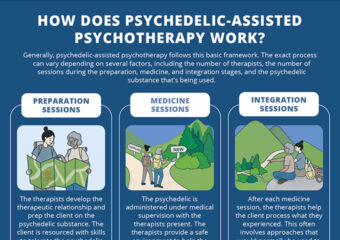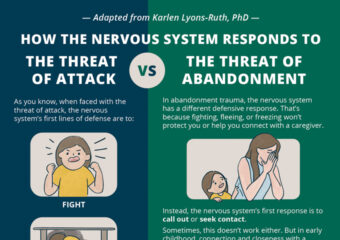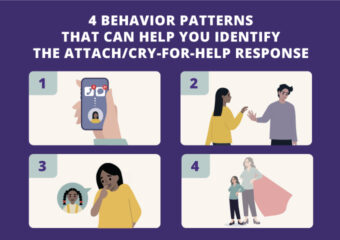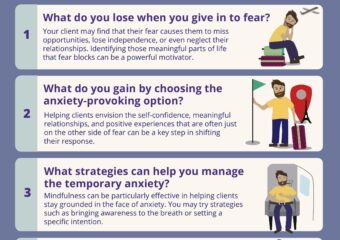As therapists, we know the power of naming something. You’ve probably heard this before . . . . . . you have to name it to tame it. Well, not only does that sound catchy, but there’s a wealth of research to back it up. So when it comes to working with the parts of […]
[Infographic] How Psychedelic-Assisted Psychotherapy Works
In recent years, there’s been a growing interest in the use of psychedelics in the treatment of trauma. And in all the excitement over the latest findings, some clients may be eager to experiment. The problem is, they may not always be aware of the risks involved – especially when it comes to taking that […]
[Infographic] How the Nervous System Responds to Abandonment
We know that in the face of threat, the nervous system responds in ways designed to help keep us safe. For example, if your client was under physical attack, their nervous system may have gone into fight, flight, or freeze. But of course, that’s only one type of threat. And the responses that might be […]
[Infographic] 4 Signs of the Attach/Cry-for-Help Response
When people are in distress, seeking out the support and comfort of others can be a natural response. But for clients who’ve experienced trauma, this response can sometimes signal something more. Their persistent attempts to elicit help from others may indicate that they’re stuck in the attach/cry-for-help response. So how can we better recognize this […]
[Infographic] 4 Questions to Help Clients Overcome Anxiety
When clients experience anxiety, their first response is often to avoid whatever (or whomever) might be causing it. But when clients become trapped in a cycle of avoidance, it can keep them from the very activities and people they value most. So how can we help clients see the cost of their avoidance strategies – […]




